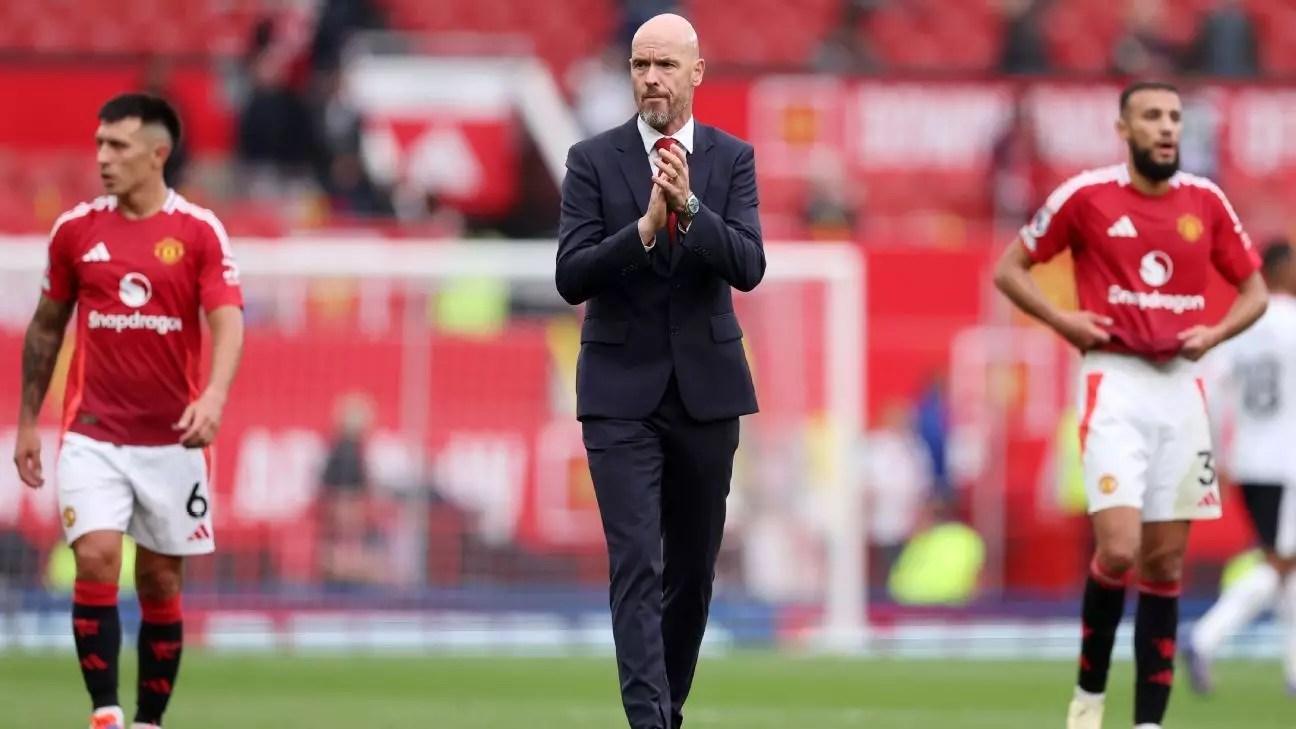The landscape at Manchester United has become increasingly tumultuous for manager Erik ten Hag, especially in the wake of a disheartening 3-0 defeat to fierce rivals Liverpool. As the team enters a pivotal match against Southampton, Ten Hag is keenly aware that the patience of the club’s hierarchy is wearing thin. Despite the vocal support from United’s CEO, Omar Berrada, and sporting director, Dan Ashworth, who both laud him as the right man to guide the club, Ten Hag acknowledges that performance on the pitch is the ultimate gauge for his job security.
Ten Hag’s admission that “in football you have to win” is not merely a mantra but a stark reminder of the expectations that come with managing one of the world’s most storied football clubs. The Dutch manager highlighted that the organization’s leadership is cognizant of this necessity, underscoring a collaborative effort to elevate the team’s fortunes. The pressure is compounded by last season’s underwhelming finish, where United ended in eighth place in the Premier League, although they did end on a victorious note by capturing the FA Cup. The optimism surrounding Ten Hag’s contract extension has quickly faded as the new season has seen just one win from three matches.
Ten Hag has suggested a more nuanced view regarding accountability for the club’s performance, asserting that it shouldn’t solely rest on his shoulders. His remarks alluding to “a lot has happened to this club” in the recent past reflect a broader context, including changes in leadership and ownership structures that can certainly impact a team’s cohesion and morale. This brings to light the complexities of managerial success; it is not just about tactical decisions or player formations but also about the organizational environment. The integration of new systems can take time, and Ten Hag is navigating a transitional phase that could affect team dynamics.
In a display of loyalty and leadership, Ten Hag has also come to the defense of Matthijs de Ligt, a summer signing who faced scrutiny after a lackluster performance for the Netherlands. Ten Hag’s comments suggest a commitment to his players and faith in their abilities to rebound from adversity. The patience he displays toward de Ligt mirrors the broader challenges within the squad, as many players are still settling into their roles under a new tactical regime.
Framing this situation in a larger narrative, Ten Hag is aware that the impending matches are crucial not only for enhancing performance but also for solidifying his standing within the club. Each game represents not just a tactical battle but also a psychological test for a manager and his players. As the clock ticks down to the Southampton match, the stakes are undeniably high, and the outcome could shape the future arc of Ten Hag’s tenure at Manchester United.
Ten Hag’s ability to navigate the pressures of modern football, combined with his commitment to fostering a resilient squad, will be key for Manchester United as they strive to reclaim their status among England’s elite.


Leave a Reply